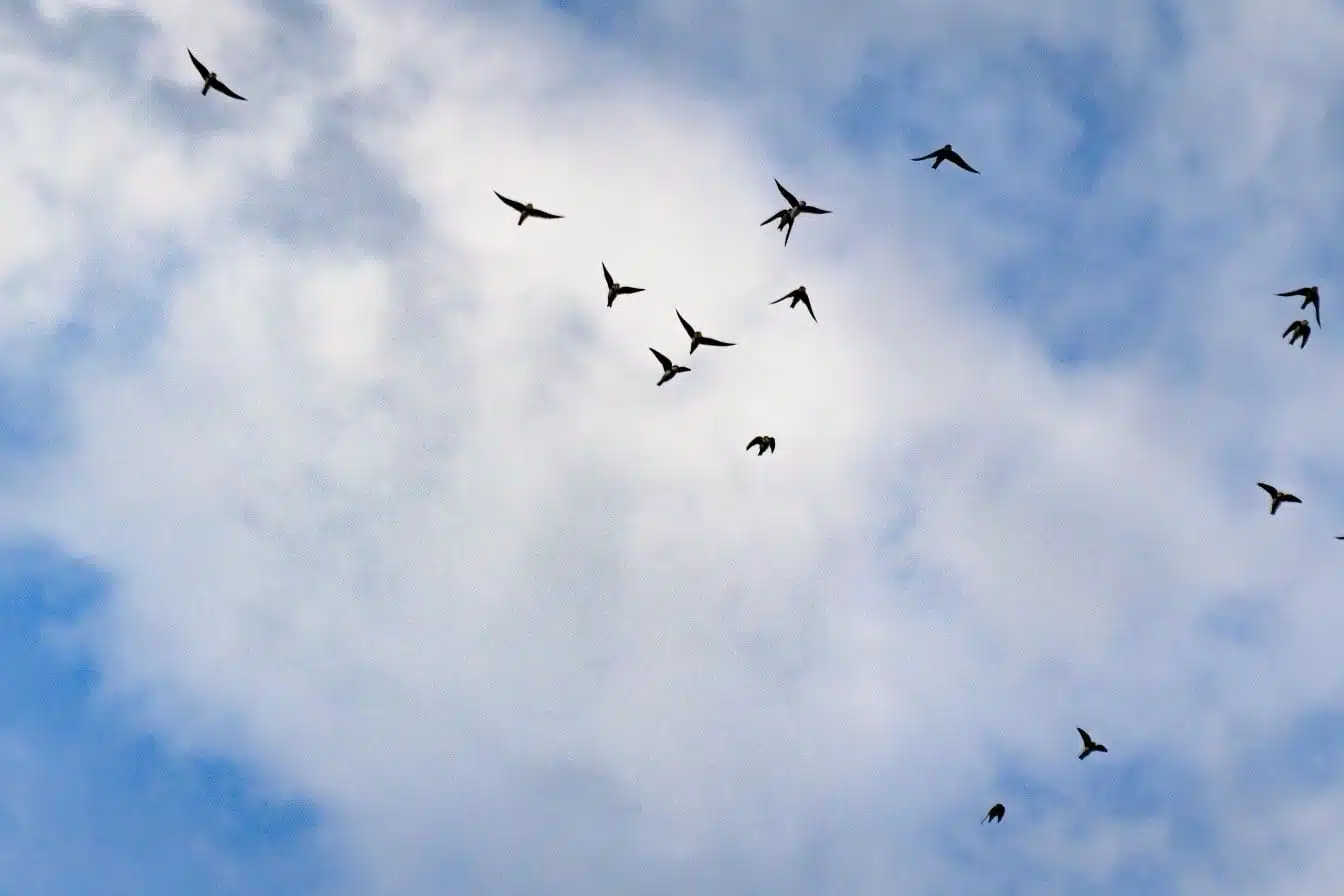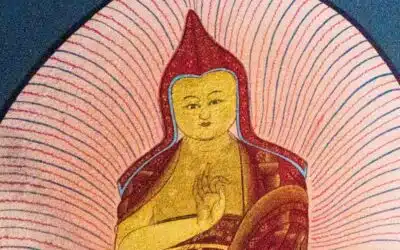The great natural peace

Written By Johanne Bernard
Blog | General Introduction to Dzogchen | What about me?
In “The great natural peace” Johanne talks about the beginning of a path, which is neither a path nor a beginning…
.
Series: The spiritual path in Dzogchen
Beginning the Dzogchen path
The great natural peace
Before we set out on a path, we would like to know a little about it… Tradition tells us that the path of the Dzogchen is a path of liberation, but until we have lived and experienced it, it is difficult to grasp. It’s also difficult to determine what the Great Perfection, which is totally free by nature, is. So where do we start?
We could say that…
The Dzogchen path is not a path that we take and that distances us from other paths, because it is not exclusive. Dzogchen is a way of directly perceiving reality.
The Dzogchen path is not a path of renunciation. It doesn’t invite us to stop experiencing sensations, thoughts, emotions and so on. It invites us to perceive their real nature, the dynamics of the mind.
The Dzogchen path does not require any particular conditions. It doesn’t judge whether a situation is good or bad. It rejects nothing and seeks nothing. It integrates everything.
The Dzogchen path is not an intellectual path, although if it is necessary to study the texts. It is a path of experience, which enables us to recognize our true nature, the primordial state, present from the beginning.
Because it is a path of experience, the Dzogchen path is not a path of belief in something external. It invites us to observe ourselves in order to discover our true condition. It is a path of certainty.
“Where is the Dzogchen path?, we ask ourselves, as it slips away from us like a drop of mercury as soon as we try to grasp it.”
The Dzogchen path is not a path that starts somewhere and ends somewhere. It is in the moment, immediate.
Immediate, in the moment, without beginning or end, the Dzogchen path therefore cannot be ‘walked’… Knowing its illusory aspect, why, then, do we try to ‘begin’ it?
Because, quite simply, our existence is determined by a beginning and an end, a birth and a death, and our whole life is conditioned in this way: a rise, a fall; an illness, its cure; a goal, a result… As human beings, we cannot conceive of a path without imagining a beginning and an end. Before we can realize that there is, in fact, no path, we have to integrate this path into our vision of what we believe to be our reality, the reality of our existence.
Does that distort the idea of the Dzogchen path? In the beginning, yes. But for the Great Perfection, it doesn’t matter. Because on the Dzogchen path, at a certain point, we will no longer ask ourselves the question of the beginning or the end, because we will realize that they have always been at the Base.
What about motivation ? Well, we could give a thousand reasons, specific to each and every one of us, for starting on the Dzogchen path… But it is very likely that, they too are conditioned at the beginning, by the determination of our existence, with the desire to live it better, to give meaning to our life, or even to our death… Is this then Dzogchen? Not according to the tradition, which reminds us that the primary motivation is the realization of the Great Perfection for the ultimate benefit of all beings, and that its counterpart is devotion, the fundamental connection to primordial nature (see (False) Start)… We may deeply wish to walk the Dzogchen path for the benefit of all beings, without ever forgetting the connection to primordial nature, but if, behind this motivation, there is the wish to put an end to suffering, one’s own and that of others, and we forget that the master is the source and reflection of this connection to primordial nature… Is this Dzogchen then? Not according to the tradition…
“So how do we begin?”, we ask ourselves, realizing that true compassion and devotion are only truly found along the way… “Where is the Dzogchen path?”, we ask ourselves, as it slips away from us like a drop of mercury as soon as we try to grasp it.
In a magnificent song entitled ‘The Great Natural Peace’, taken from the collection of didactic poems ‘Some Letters of Precept to His Disciples’[1], Nyoshul Khen Rinpoche, a great twentieth-century Tibetan Dzogchen master, writes to his disciples:
Rest in natural great peace
This exhausted mind
Beaten helpless by karma and neurotic thought
Like the relentless fury of pounding waves
In the infinite ocean of saṃsāra.
Let it rest in the great natural peace.
Let it rest in the great natural peace…
There lies Dzogchen.
Both beginning and end, for us who set out on the path.
Neither beginning nor end, for the mind, free of all conceptual elaboration, in the base of primordial purity.
In both cases, Great Perfection.
[1] Reférence : A Collection of Oral Instructions and Advice Given to Students o Students (mkhan po ‘jam dbyangs rdo rje’i gsung / zhal gdams slob springs kyi skor ‘ga’ shas),
https://www.rigpawiki.org/index.php?title=Nyoshul_Khen_Rinpoche
Traduction Lotsawahouse.
https://www.lotsawahouse.org/fr/tibetan-masters/nyoshul-khenpo-jamyang-dorje/natural-great-peace
More Posts
Being Your Own Master
Relationship with a master requires discernment. “Being your own master” offers insights into understanding devotion and avoiding pitfalls.
Phenomena
"Phenomena" is the second entry in a new category designed to improve understanding of essential Dzogchen words and concepts.
The Story of the First Masters: Manjushrimitra
We continue the Stories of the First Dzogchen Masters with Manjushrimitra, who structured the verses of Dzogchen into three series.




